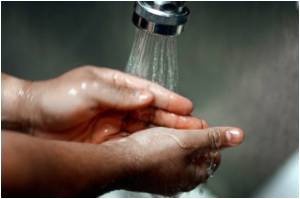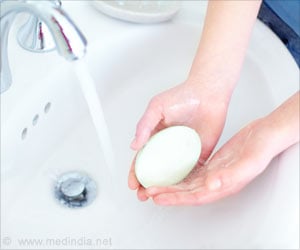Is hand hygiene important in hospital settings? Clean hands can help patients and staff in healthcare settings to avoid healthcare-associated infections (HAIs). So, wash your hands

Strategies to Prevent Healthcare-associated Infections through Hand Hygiene: 2022 Update, one in a series of expert guidance documents known collectively as the Compendium, was published today in the journal Infection Control & Hospital Epidemiology.
‘How to prevent healthcare-associated infections (HAIs)? Hand hygiene can protect patients and staff in healthcare settings from getting infections. So, wash your hands often.’
Read More..




Read More..
Advertisement
Importance of Hand Hygiene
“Hand hygiene is a basic function of healthcare safety,” said lead author Janet Glowicz, PhD, RN, CIC, with the Centers for Disease Control and Prevention. “By engaging healthcare personnel and establishing reliable processes described in the Compendium, we can achieve effective, consistent hand hygiene. Commitment by healthcare leadership is also necessary to establishing a culture of safety.”Advertisement
How to Keep Your Hands Clean?
The document addresses how facilities can train healthcare personnel in proper technique, monitor their compliance, engage them in the selection of products to keep their skin healthy, and properly use gloves. It also discusses where facilities should place them and how they should maintain alcohol-based sanitizer dispensers and sinks.The guidance reviews the evidence around nail polish, gel, and shellac, which shows that short, natural nails with standard polish or no polish are easiest to clean. The authors found no new evidence specific to chipped nail polish and artificial nails but noted previous findings that they can harbor germs. The guidance leaves specific policies about nail polish, gels, shellac, and artificial nail extenders to the discretion of infection prevention programs at each facility, with the exception of policies for those who scrub for surgery or work in high-risk areas. These personnel should maintain short, natural fingernails free of polish and nail extenders.
Citing research that shows only 7% of healthcare personnel effectively clean the entire surface of their hands, the guidance recommends ongoing training inhandwashing and proper use of sanitizer. Thumbs and fingertips were most frequently missed.
Wash and Sanitize Hands Properly to Kill Germs
The authors recommend that healthcare personnel not be provided with individual, pocket-sized hand sanitizers in lieu of wall-mounted sanitizer dispensers and emphasize that hand sanitizer dispensers shouldalways be widely available and never prohibited, even in situations when washing with soap and water are indicated. When healthcare personnel suspect organisms that are difficult to remove, such as C. difficile and noroviruses, they should wear gloves and follow structured techniques for hand washing and hand sanitizing. In addition, facilities should not top-off sanitizer dispensers meant for single use or provide antimicrobial soaps that contain Triclosan. Facilities also should discourage the use of double gloves, except in certain circumstances.To encourage compliance and to support healthy skin and nails, facilities should include healthcare personnel in the selection of hand sanitizers and moisturizers, while ensuring the products are compatible with antiseptics and gloves used on site. Maintaining healthy skin is a crucial element of hand hygiene.
Ways to Practice Hand Hygiene in Surgical Settings
Surgical settings require special care, but waterless hand hygiene with surgical hand rubs is acceptable, especially as it improves compliance. Brushes should be avoided in surgery prep due to their negative impact on skin health. This document updates the 2014 Strategies to Prevent Healthcare-associated Infections through Hand Hygiene. The Compendium, first published in 2008, is sponsored by the Society for Healthcare Epidemiology (SHEA). It is the product of a collaborative effort led by SHEA, with the Infectious Diseases Society of America, the Association for Professionals in Infection Control and Epidemiology, the American Hospital Association, and The Joint Commission, with major contributions from representatives of a number of organizations and societies with content expertise. The Compendium is a multiyear, highly collaborative guidance-writing effort by over 100 experts from around the world.Upcoming Compendium updates will include strategies to prevent catheter-associated urinary tract infections, Clostridium difficile infections, methicillin-resistant Staphylococcus aureus infections, and surgical site infections. Strategies for preventing central line-associated bloodstream infections and pneumonia were updated earlier in 2022. Each Compendium article contains infection prevention strategies, performance measures, and example implementation approaches. Compendium recommendations are derived from a synthesis of systematic literature review and evaluation of the evidence, practical and implementation-based considerations, and expert consensus.
Source-Eurekalert






